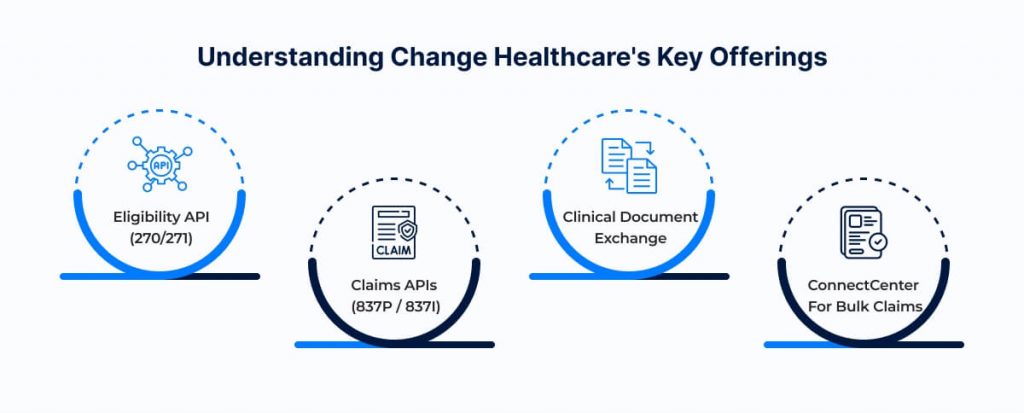Healthcare organizations in the United States provide care on a large scale. For example, HCA Healthcare runs about 2,400 care sites, including urgent care clinics, emergency rooms, surgery centers, and doctor offices in 20 states and the United Kingdom. These places see millions of patients. In 2023, HCA Healthcare had over 43 million patient visits. This shows how much healthcare is given every day.
While this care is important for patients, healthcare facilities use a lot of resources. They need electricity for lights and medical equipment, use a lot of water, and create much waste. Sustainable healthcare tries to balance giving good medical care with lowering harm to the environment.
Key Areas in Sustainable Healthcare Practices
Sustainability in healthcare includes many parts — from designing buildings and using energy to handling waste and buying supplies. Groups like Practice Greenhealth and Health Care Without Harm promote these practices in thousands of hospitals and health systems in the U.S. and Canada.
1. Green Facility Design and Operations
Building and running healthcare facilities with sustainability in mind can save energy and lower pollution. Using materials that are better for the environment, energy-efficient lights and heaters, and clean energy sources can reduce a hospital’s carbon output.
Practice Greenhealth helps more than 1,700 hospitals design and update their buildings in ways that care for the environment. Even operating rooms, which take up a small part of the hospital space, can be improved to save energy and money.
Using clean energy like solar or wind reduces the need for fossil fuels. Hospitals that switch to these sources can also save money on energy later. Using less water is also important, even though it is sometimes forgotten.
2. Sustainable Procurement
Hospitals buy many things such as medical supplies, food, and chemicals. Sustainable buying means thinking about the environmental and social effects when making purchases. Choosing safer chemicals and avoiding products with too much packaging or unsustainable origins helps the environment.
Health Care Without Harm has created rules to use healthcare’s buying power to change markets for the better. For example, reducing single-use plastics and choosing non-toxic chemicals helps hospitals lower harmful waste and protect patients and staff.
3. Waste Reduction and Management
Healthcare operations create waste like medical trash, packaging, food scraps, and hazardous materials. Good waste management focuses on cutting waste, recycling, and safe disposal to keep trash out of landfills and avoid pollution.
Practice Greenhealth helps hospitals make zero waste plans and safely handle gases used in anesthesia, which add to greenhouse gases. They give tools and reports so hospitals can check and improve their sustainability work.
For example, HCA Healthcare used the “Crush the Crisis” campaign to collect over 67,500 pounds of unused or expired medicines. This protects the community from dangerous medicines getting into the environment.
4. Addressing Energy Consumption and Emissions
Energy use is a big part of how healthcare affects the environment. Hospitals use a lot of electricity to run medical devices, keep temperatures right, and light rooms.
By using energy-saving programs and switching to clean energy, healthcare providers can reduce their environmental effect. Health Care Without Harm urges hospitals worldwide to move to these energy sources. These actions cut carbon emissions and help keep operations stable during climate changes.
5. Food System Sustainability
Sustainable healthcare also changes how hospitals buy food and plan menus. Practice Greenhealth promotes menus with more plants and sustainable ingredients. This lowers the climate impact of diets heavy in meat and helps provide healthier food options for all.
The Health Care Culinary Contest by Practice Greenhealth encourages recipes that are good for the environment and suitable for patients. Recent winning dishes replace meat with foods like quinoa, garbanzo beans, yuca, and olives to provide nutrition while supporting sustainability.
Incorporating AI and Workflow Automations for Enhanced Sustainability
Technology like Artificial Intelligence (AI) and automation can help sustainability in healthcare by making work easier and cutting waste. Simbo AI is a company that uses AI to automate front-office phone tasks and answering services, showing how technology helps healthcare management.
Reducing Administrative Burden
Tasks like scheduling appointments, talking to patients, and handling paperwork take a lot of time and resources. AI systems can automate phone calls, prescription refills, and reminders, which lowers paper use and saves energy used by phone lines and staff.
For those running medical practices and IT teams, using AI tools like Simbo AI helps workers focus more on patient care and cuts down on waste caused by inefficient work.
Streamlining Care Team Documentation
Large healthcare providers such as HCA Healthcare work with cloud computing companies to use AI tools that help care teams with time-consuming paperwork. This cuts down on workload and reduces mistakes and repeated work that can make visits longer and less efficient.
AI helps automate parts of keeping patient records. This also lowers paper use and the digital space needed, which saves energy in data centers.
Enhancing Patient Engagement and Access
AI virtual assistants and communication tools improve how patients connect with healthcare providers. These tools cut down on unnecessary in-person visits and support telehealth. This reduces carbon emissions from travel and helps clinics schedule better to avoid crowded or empty times.
Leadership and Organizational Commitment
Good sustainability work in healthcare needs support from leaders. Almost 90 percent of top hospitals named by Practice Greenhealth have leaders who push sustainability efforts. For hospitals that want to reduce environmental harm, it is important to have leaders who guide these goals and connect them with the hospital’s plans.
HCA Healthcare shows this by putting $4.7 billion into improving healthcare buildings in 2023. This kind of funding helps make sustainability projects happen on a big scale.
Community Health and Environmental Responsibility
Healthcare organizations help their communities beyond just running hospitals and clinics. HCA Healthcare gave $3.7 billion in charity and unpaid care in 2023 to help community health.
Programs like medicine take-back campaigns keep dangerous medicines out of the environment and stop medicine misuse. Working on sustainability also helps make the environment healthier, which can lower health problems related to pollution.
Research and Continuous Improvement
Healthcare groups take part in research to check how well sustainability actions work and to find new ideas. In 2023, HCA Healthcare was part of more than 300 studies that helped improve both patient care and operations.
Tracking data and comparing results are important tools. Practice Greenhealth’s sustainability reports give hospitals information to see progress, spot areas to fix, and apply proven solutions to get better environmental results.
Summary of Practical Steps for Healthcare Administrators
- Adopt Green Building Practices: Invest in energy-saving buildings and renewable energy.
- Implement Sustainable Procurement: Choose safer chemicals, cut plastic use, and buy from responsible providers.
- Develop Waste Reduction Plans: Include recycling, safe medicine disposal, and cut food waste.
- Use AI and Automation: Add AI phone systems and documentation tools like Simbo AI to reduce wasted work.
- Engage Leadership: Have leaders who support sustainability to lead efforts.
- Support Community Health: Start or join local programs that deal with environmental and social health.
- Monitor and Report: Collect regular data and use it to measure success and find areas to improve.
Healthcare administrators, practice owners, and IT managers in the U.S. have a chance and responsibility to lead their organizations toward sustainable operations. By using environmental strategies along with new technologies like AI and automation, healthcare providers can lower their harm to the environment without lowering patient care quality. Using these methods helps build stronger healthcare systems that protect patients, communities, and the environment they depend on.
Frequently Asked Questions
What is HCA Healthcare?
HCA Healthcare is one of the leading healthcare service providers in the U.S., operating 186 hospitals and around 2,400 care sites, including urgent care clinics and freestanding emergency rooms across 20 states and the UK.
How many patient encounters does HCA Healthcare manage annually?
HCA Healthcare manages over 43 million patient encounters each year, which it leverages to advance medical science and improve patient care.
What is HCA Healthcare’s approach to community support?
In 2023, HCA Healthcare provided over $43 million in enterprise giving to community organizations and delivered charity and uncompensated care valued at approximately $3.7 billion.
How is HCA Healthcare addressing high-priority community health needs?
The Healthier Tomorrow Fund, with an initial investment of $75 million, focuses on health equity and supporting initiatives through collaboration with organizations like Volunteers of America.
What technological advancements is HCA Healthcare implementing?
In August 2023, HCA Healthcare partnered with Google Cloud to utilize generative AI technology for assisting care teams with documentation and other time-consuming tasks.
What are HCA Healthcare’s contributions to surgical recovery?
HCA’s Enhanced Surgical Recovery program has led to significant improvements in recovery, including reducing hospital stays by an average of two days and decreasing opioid usage by up to 44%.
What recognitions has HCA Healthcare received?
In 2024, 54 HCA Healthcare hospitals were recognized by Healthgrades for superior performance, and the company was also named one of the World’s Most Ethical Companies by Ethisphere.
How does HCA Healthcare support medical education?
HCA Healthcare offers significant medical training through over 300 graduate medical education programs and through its Galen College of Nursing, which has expanded by opening new campuses.
What initiatives is HCA Healthcare involved in regarding public health?
HCA Healthcare has participated in over 300 industry-sponsored studies in 2023, working with organizations like the American Heart Association to enhance medical research and care.
How does HCA Healthcare reduce environmental impact?
In 2023, HCA Healthcare diverted over 34 million pounds of construction waste and 30.4 million pounds of shredded paper from landfills, underlining its commitment to sustainability.
The post Sustainability Practices in Healthcare: Strategies for Reducing Environmental Impact and Promoting Eco-Friendly Operations first appeared on Simbo AI – Blogs.






